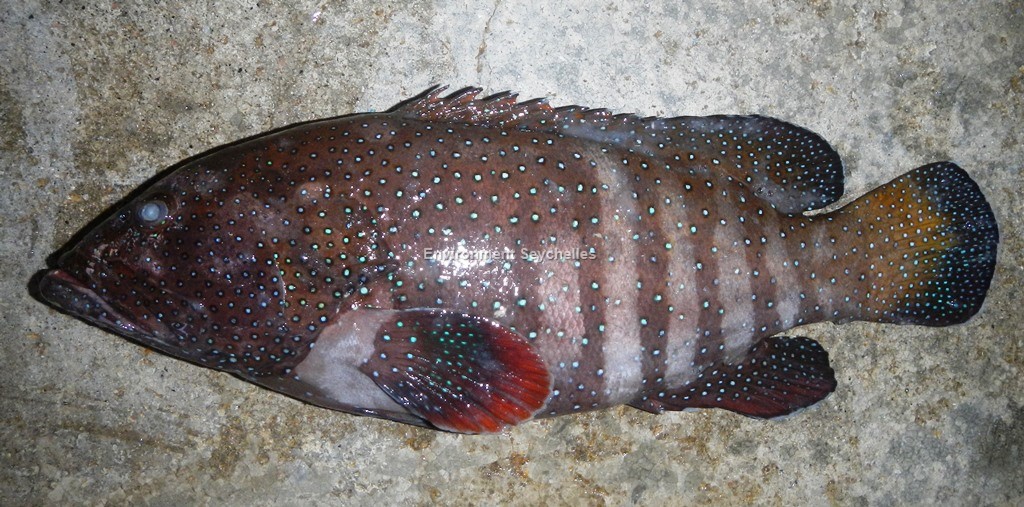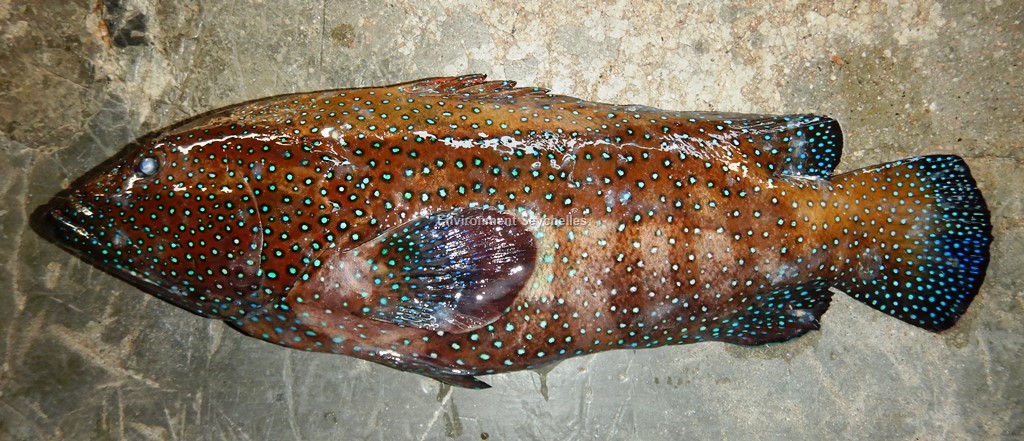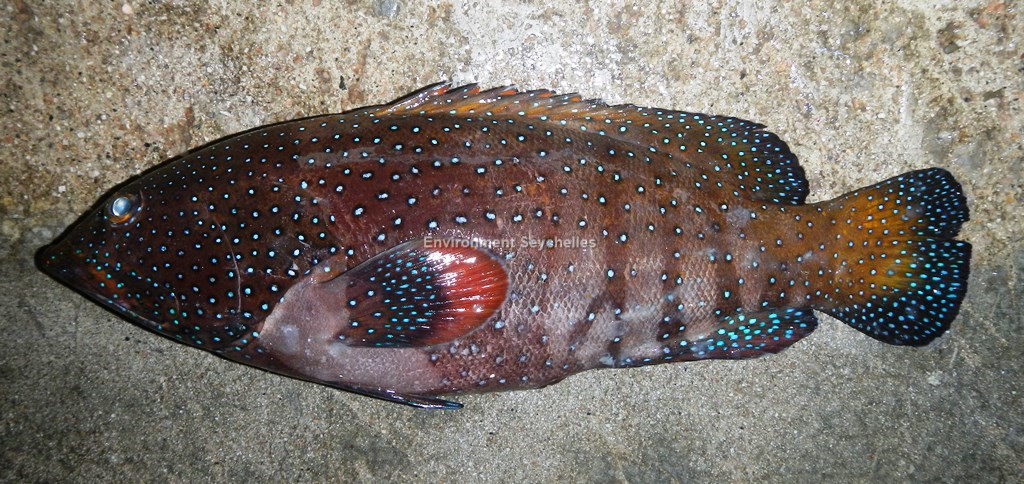Description:
Dorsal spines: 9; Dorsal rays: 15-17; Anal spines: 3; Anal soft rays: 9.
Small eye, maxilla reaching well past eye. Rounded caudal fin.
Colour. Dark brown with bright blue or green black-edged spots. Spots more dense on forequarters and fins. 5-6 pale bars on hindquarters. Pale area on chest sometimes apparent.
Distal portion of pectoral fins often reddish brown. Triangular membranes at the tips of the dorsal-fin spines orange red.
Size:
Maturity: Lm unkown, range 22 - ? cm. Max length : 60.0 cm.
Habitat and Ecology:
Reef-associated, especially exposed reef front areas (depth 1-40 m, usually 1-15 m). Juveniles prefer shallow, protected coral thickets. Primarily feeds on a variety
of small and juvenile reef fishes and to a lesser extent crustaceans. Occurs in social groups comprised of a single male with a harem of females. Male territory is
positively associated with fish size. An area up to 2,000 m² can be defended by a male and is subdivided into secondary territories, each inhabited by a single female.
Pears (2005) cites a maximum length of 37.8 cm and maximum age of 19 years, in Seychelles. A 2-year survey of Seychelles serranid catch (Nevill 2019) recorded a
maximum length of 44 cm TL.
Fishery Status:
This species is not protected or subject to fishery regulations. It is caught in the handline and fish trap fisheries, it is a regular but not numerous component of the catch.
Notes:
References:
Choat, J.H. et al. (2018). Cephalopholis argus. The IUCN Red List 2018: http://dx.doi.org/10.2305/IUCN.UK.2018-2.RLTS.T132781A100453441.en. (02/01/19)
Craig, M.T. et al. (2011). Groupers of the World - a field and market guide. NISC (Pty) Ltd, South Africa. ISBN: 978-1-920033-11-8
Froese, R. & D. Pauly. (Eds.) (2019). FishBase. http://www.fishbase.se/summary/Cephalopholis-argus.html (02/01/19).
Nevill, J. (2013). A Species Identification Guide for Commonly Caught Fish in the Seychelles Near-Shore Artisanal Fishery. GOS/UNDP/GEF.
Nevill, J. (2019). Artisanal fishery catch monitoring database.
Pears, R.J. (2005). Comparative demography and assemblage structure of serranid fishes: implications for conservation and fisheries management. James Cook University.
Citation:
Nevill, J.E.G. (2019). Cephalopholis argus, Peacock hind. Seychelles Seatizens. www.seatizens.sc. https://seatizens.sc/species/cephalopholis-argus-scheinder-1801/ (edited 24/07/22).



